“We just had our photograph here with the Pope a few minutes ago and everybody is feeling part of the whole Universal Church and feeling that sense of love and joy and hope that goes with it,” she said.
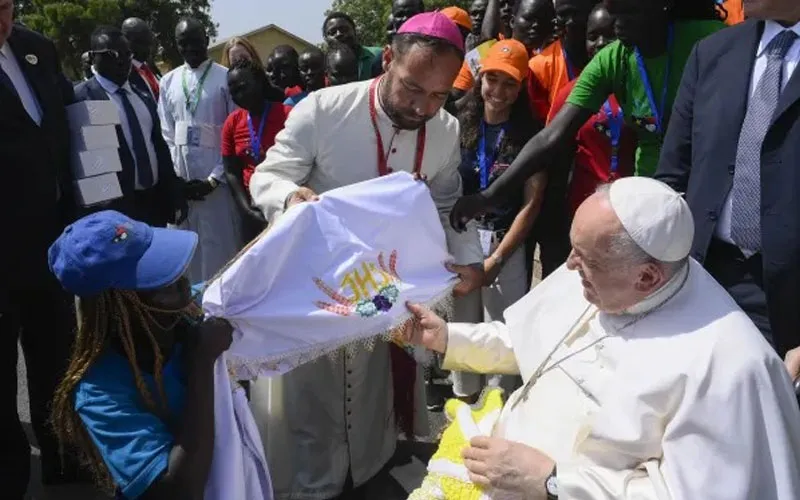 Crediit: ACI Africa
Crediit: ACI Africa
After arriving in South Sudan in the afternoon of Friday, February 3, Pope Francis was received at Juba international airport in a welcome ceremony before he proceeded to the Presidential Palace for a courtesy visit to the President of South Sudan, Salva Kiir.
In his speech at the Presidential Palace, Pope Francis begged political leaders in South Sudan to work together to put an end to bloody conflict and violence in their country.
“No more bloodshed, no more conflicts, no more violence and mutual recriminations about who is responsible for it, no more leaving your people a thirst for peace,” the Holy Father said, addressing himself to South Sudan’s President and the country’s three Vice Presidents in the garden of the Presidential residence in Juba.
(Story continues below)
On his part, President Kiir who spoke before Pope Francis addressed them pledged to focus on realizing peace for his country.
President Kiir mentioned the September 2022 Road Map, a transitional period of 24 months for the implementation of the September 2018 Revitalized Agreement on the Resolution of Conflict in South Sudan (R-ARCSS).
In his last official activity of his first day in South Sudan, Pope Francis alongside the Anglican Archbishop of Canterbury, Justin Welby, and the Moderator of the Church of Scotland, Iain Greenshields engaged with authorities and members of the diplomatic corps in the garden of the Presidential Palace.
On Saturday, February 4, Pope Francis met with Bishops, members of the Clergy, women and men Religious, and Seminarians at St. Theresa's Cathedral of Juba Archdiocese.
He listened to a testimony about the lives and ministries of Sr. Mary Daniel Abud and Sr. Regina Roba, the two members of the Sisters of the Sacred Heart of Jesus (SHS) who were killed in a road ambush along the Juba-Nimule highway that links South Sudan and Uganda in August 2021
In his address, the Holy Father held a moment of silence for members of the Clergy and Religious who have been killed in South Sudan, saying, “Let us think in silence of these brothers and sisters who have lost their lives in this pastoral ministry.”
Many members of the Clergy, women and men Religious, Pope Francis said, “have been victims of violence and attacks in which they lost their lives. In a very real way, they offered their lives for the sake of the Gospel.”
“Their closeness to their brothers and sisters is a marvelous testimony that they bequeath to us, a legacy that invites us to carry forward their mission,” he said at St. Theresa’s Cathedral where local authorities reported the presence of approximately 1,000 inside the Cathedral of Juba Archdiocese, and another 5,000 outside.
Pope Francis went on to highlighted the example of St. Daniel Comboni (1831-1881), the Italian-born missionary and the first Catholic Bishop of Central Africa, who died in Khartoum, Sudan.
Alongside his missionary brothers, the Pope said, Comboni “carried out a great work of evangelization in this land.”
“He used to say that a missionary must be ready to do anything for the sake of Christ and the Gospel. We need courageous and generous souls ready to suffer and die for Africa,” the Holy Father said.
He encouraged the Bishops, members of the Clergy, women and men Religious, and Seminarians to intercede for their people, explaining, “To intercede is thus to come down and place ourselves in the midst of our people, to act as a bridge that connects them to God.”
Stepping into the midst of God’s people is something the Church’s Pastors need to cultivate, Pope Francis emphasized, adding that Pastors of the people of God need to have “the ability to step into the middle of their sufferings and tears, into the middle of their hunger for God and their thirst for love.”
“Our first duty is not to be a Church that is perfectly organized, but a Church that, in the name of Christ, stands in the midst of people’s troubled lives, a Church that is willing to dirty its hands for people,” he said.
Pope Francis thanked Church personnel in South Sudan for their dedication to the Church, and for their courage, sacrifices, and patience.
“I pray that you will always be generous pastors and witnesses, armed only with prayer and love; that you allow yourselves, in meekness, to be constantly surprised by God’s grace; and that you may become a means of salvation for others, prophets of closeness who accompany the people, intercessors with uplifted arms,” he said during the February 4 morning event.
He proceeded to meet privately with members of the Society of Jesus (Jesuits) ministering in South Sudan in the Apostolic Nunciature.
The Pope visited internally displaced persons (IDPs) at Freedom Hall in Juba.
In the evening, the Holy Father participated in an ecumenical prayer service alongside Archbishop Welby and Rev. Greenshields at the John Garang Mausoleum.
The same venue is scheduled to host Holy Mass on the morning of the last day of the ecumenical trip, on Sunday, February 5, to be followed by a farewell ceremony at Juba international airport in midmorning before Pope Francis leaves for Rome.
ACI Africa was founded in 2019. We provide free, up-to-the-minute news affecting the Catholic Church in Africa, giving particular emphasis to the words of the Holy Father and happenings of the Holy See, to any person with access to the internet. ACI Africa is proud to offer free access to its news items to Catholic dioceses, parishes, and websites, in order to increase awareness of the activities of the universal Church and to foster a sense of Catholic thought and culture in the life of every Catholic.



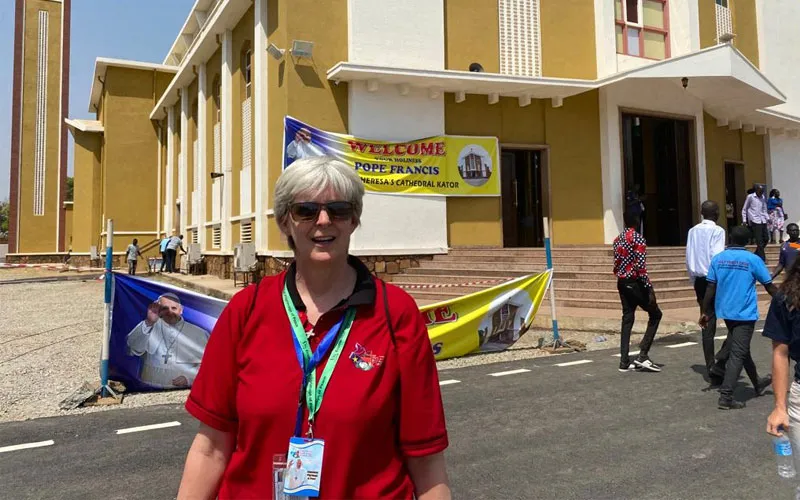
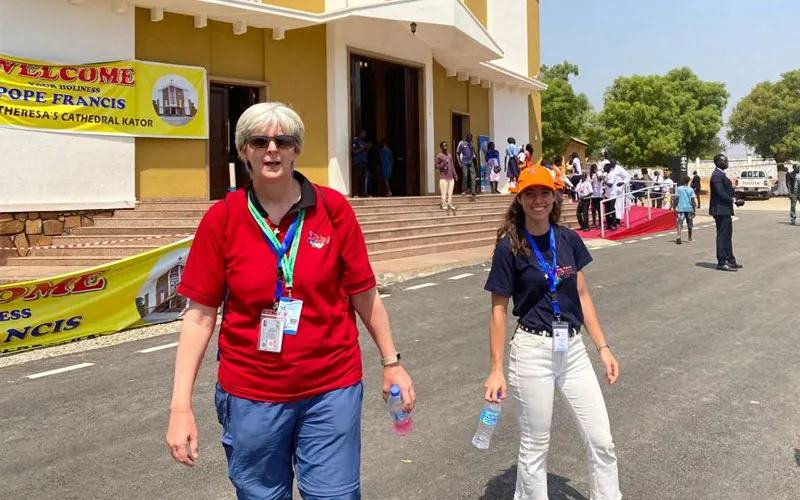 Sr. Orla Treacy. Credit: ACI Africa
Sr. Orla Treacy. Credit: ACI Africa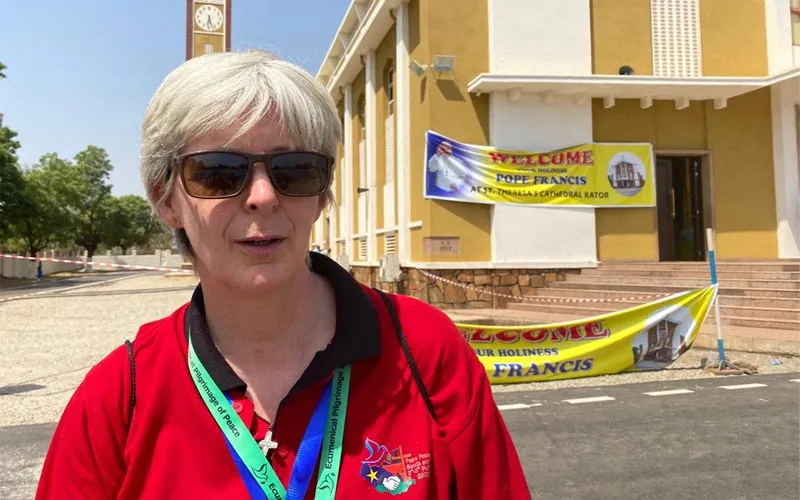 Credit: ACI Africa
Credit: ACI Africa
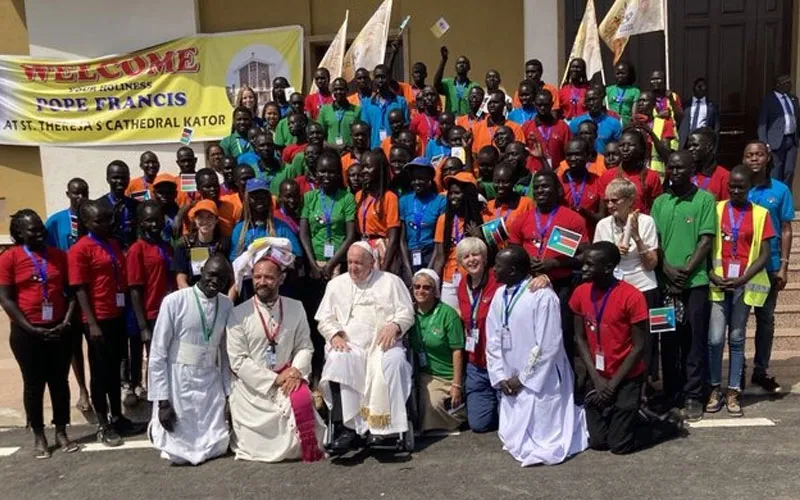 Credit: ACI Africa
Credit: ACI Africa Crediit: ACI Africa
Crediit: ACI Africa


